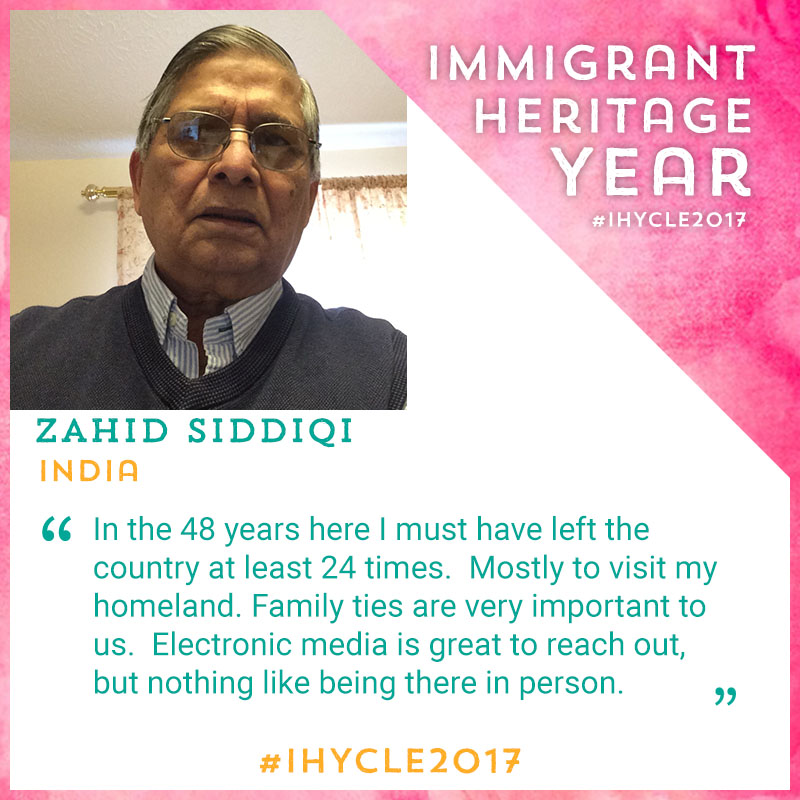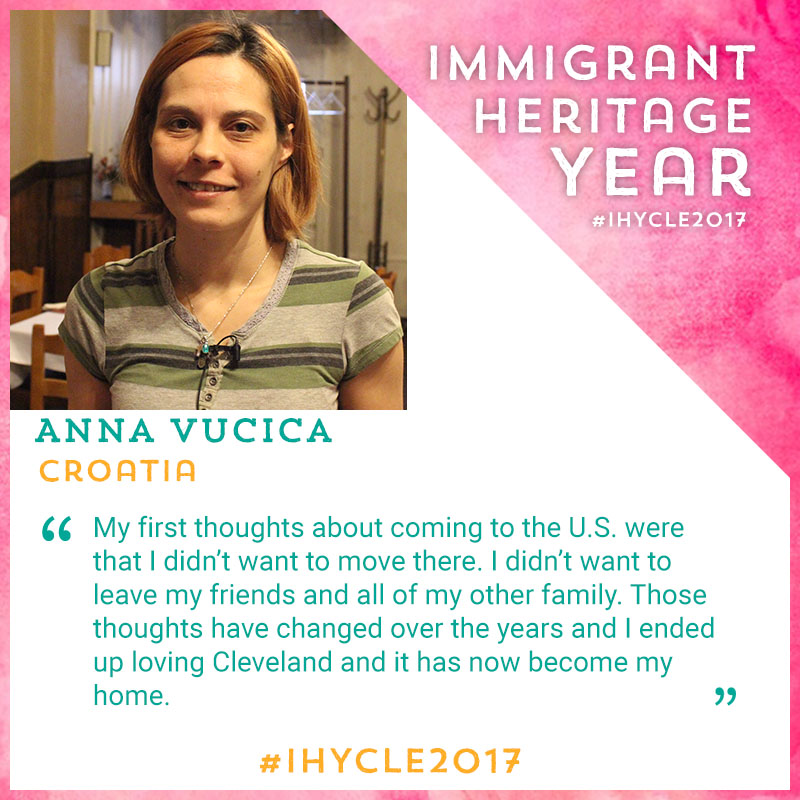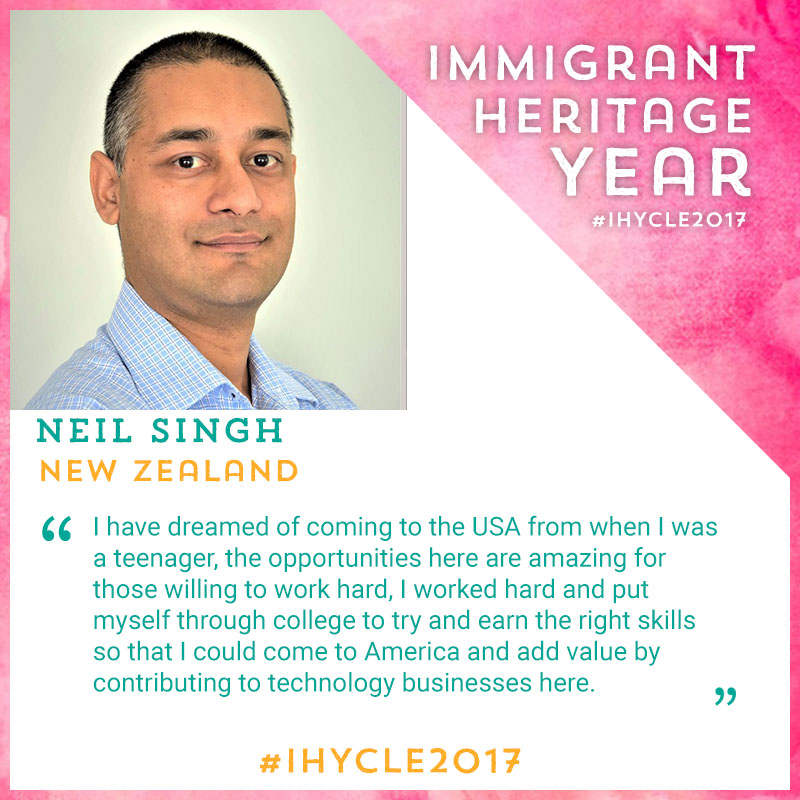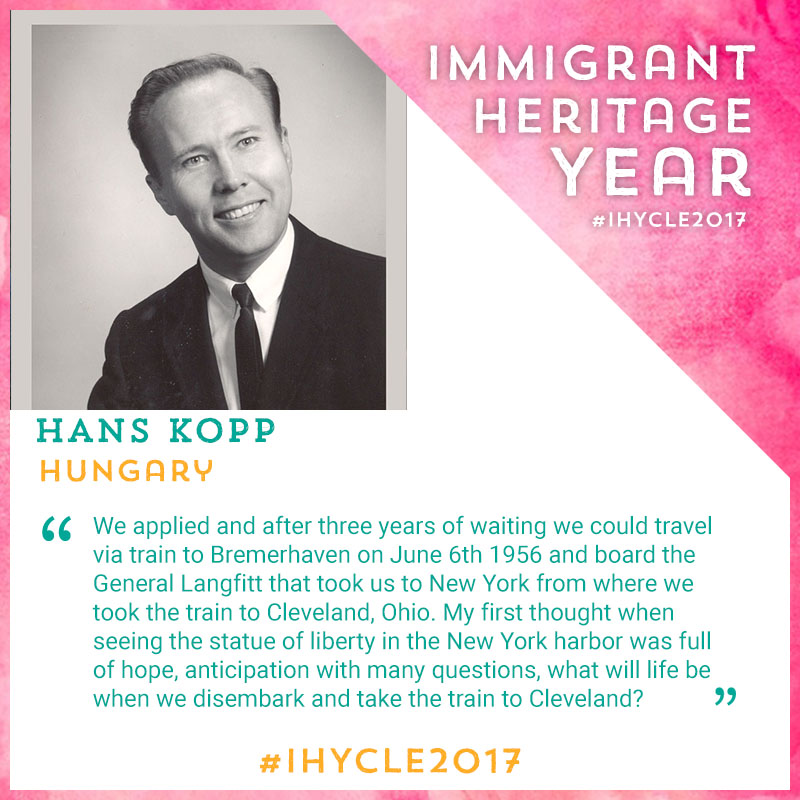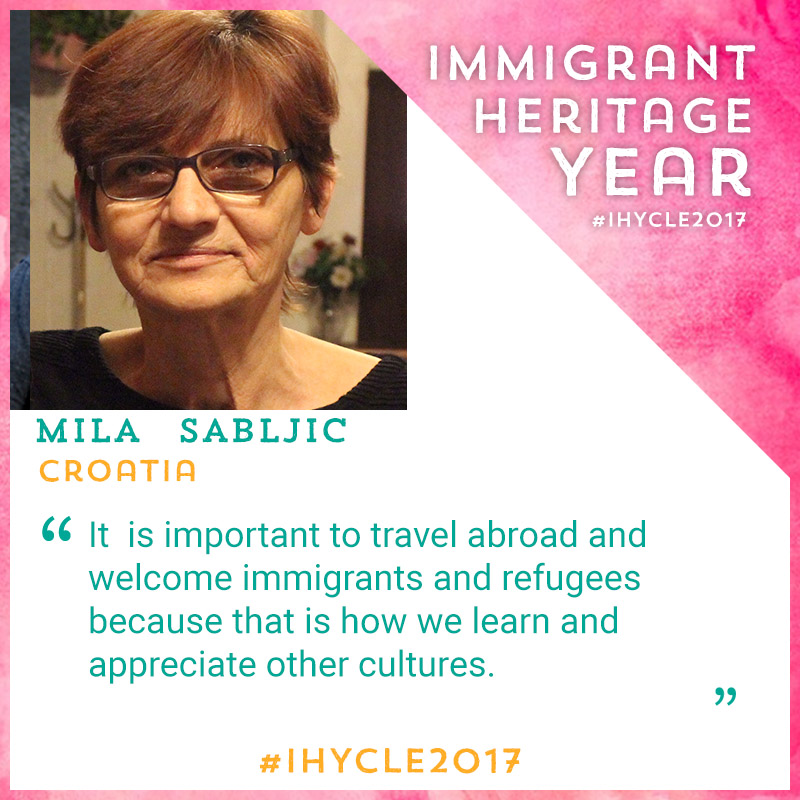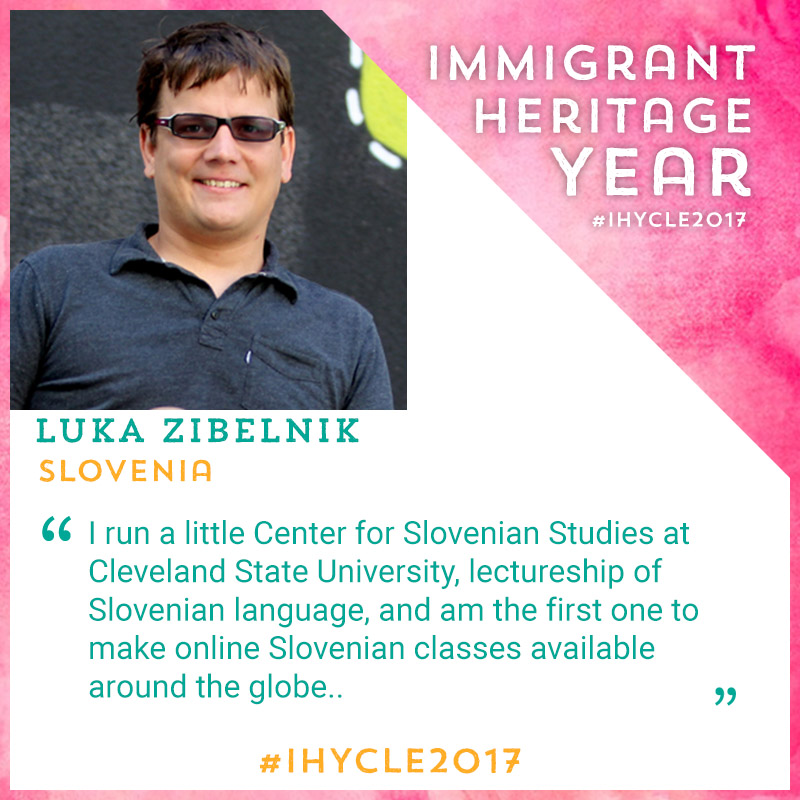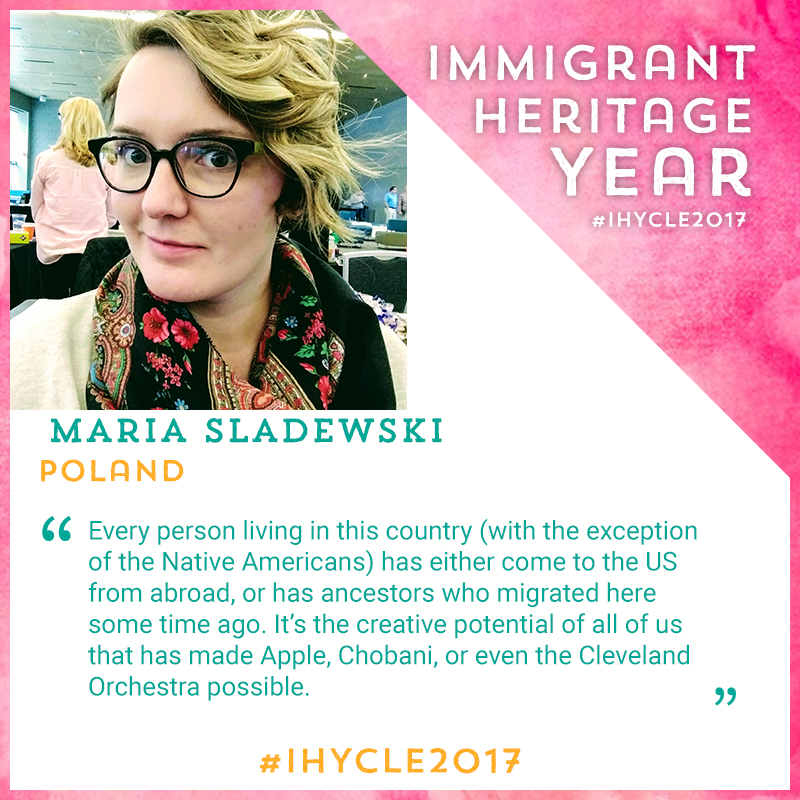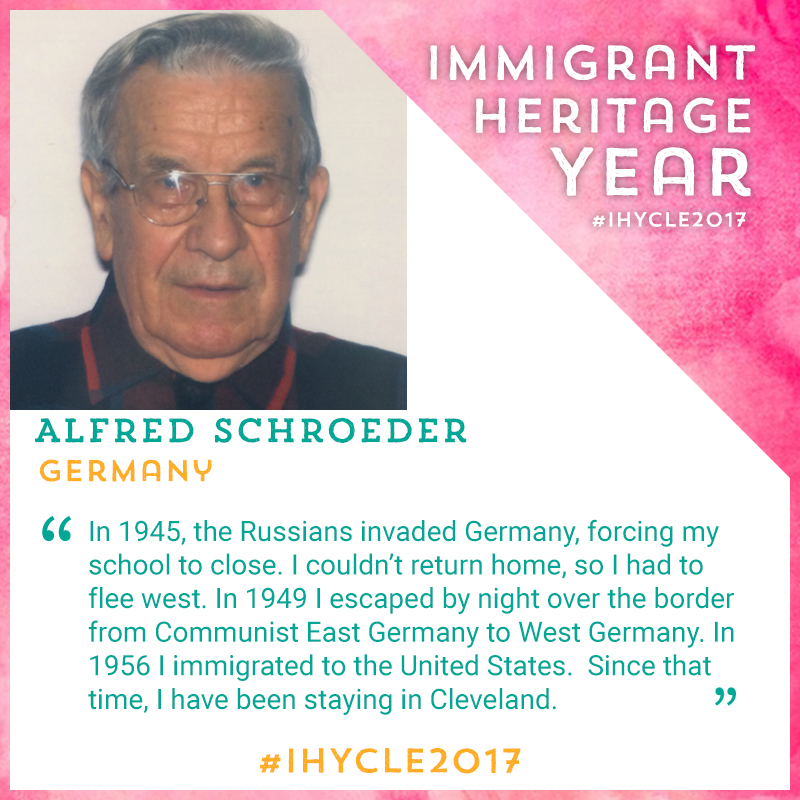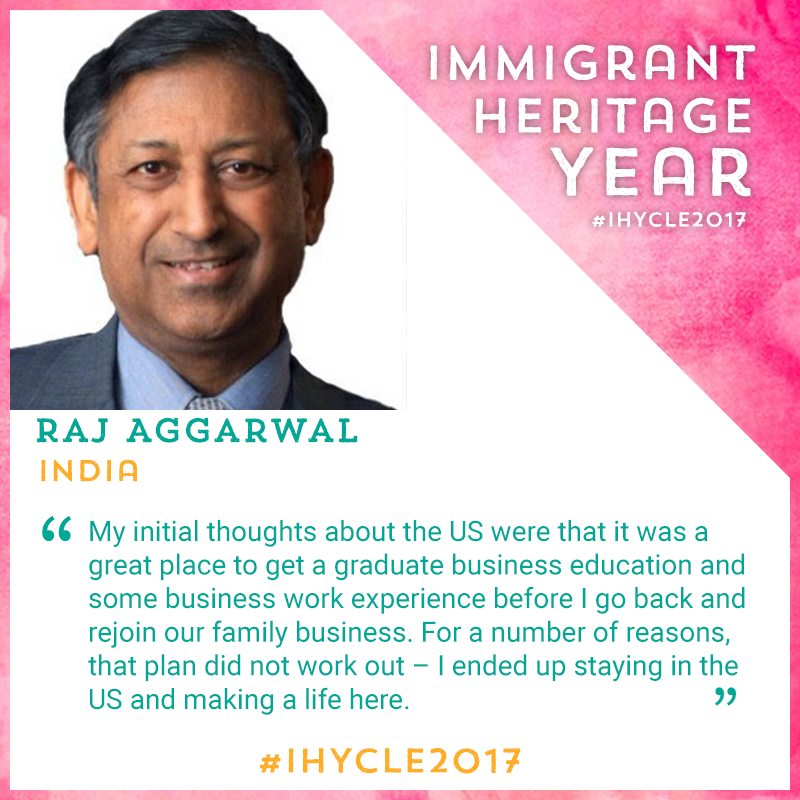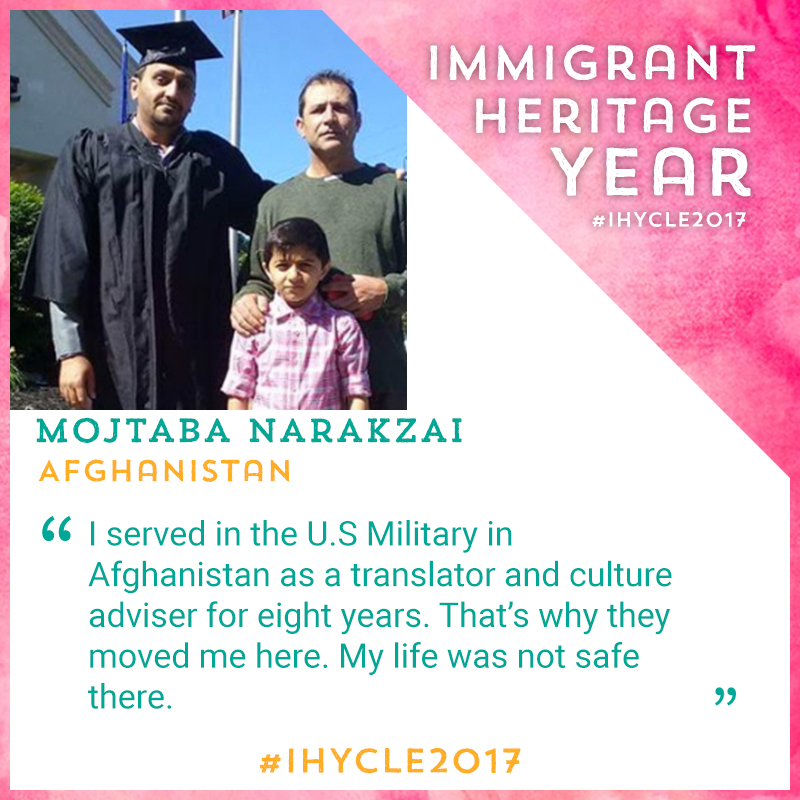Zahid Siddiqi
Where are you from?
I am from India
What was your childhood like?
A very happy childhood indeed. Nine(9) siblings, caring parents, loads of friends, bunking school, picnics--everything nice.
What brought you to Cleveland?
Ethnic/ religious issues made me leave India. Came to Cleveland because there was someone (a relative) here already.
What were your first thoughts about coming to the United States? Did those change?
I found the life in the US everything I had imagined plus more. Good life, plentiful of everything, work appreciation, jobs etc.
What challenges did you face transitioning here?
I used to be an engineer and found good jobs with supportive people, willing to guide and show the way. The weather was and still is the only challenge. But we get our share of good days--so no complaints.
What is your occupation? Are you a member of a sorority, fraternity, or any other civic or social organization?
I have been retired for 17 years. I serve as an officer on the boards -- India Association, Aligarh Alumni Association (my alma mater), Bazm e Adab Cleveland, Islamic Center of Cleveland, the Refugee Masjid on Detroit Ave.
How have other Clevelanders made you feel welcomed?
Cleveland has been most welcoming in all my 48 years here--no regrets.
What traditions or customs do you continue to practice?
I follow all of our religious and cultural traditions.
What do you love about Cleveland?
The easy life style, access to cultural, educational and medical facilities. Traffic. Opportunities. The ethnic mix of the city and many other etceteras.
Why is it so important to welcome immigrants and refugees?
Being an immigrant myself I value the help, the welcome and the guidance I received. Without it would have been so much harder. Refugees are, mostly illiterate, already traumatized and need so much more help.
Why is it important to travel abroad?
In the 48 years here I must have left the country at least 24 times. Mostly to visit my homeland. Family ties are very important to us. Electronic media is great to reach out, but nothing like being there in person.
Anna Vucica
I am from Croatia.
I moved to Cleveland when I was 10 years old because my parents wanted us to have a better life here.
My childhood life was honestly not that great. Because of the fact that I didn’t know a word in English, and because I “looked” different, most of the other children in my class had a tendency to make fun of me.
My first thoughts about coming to the U.S. were that I didn’t want to move there. I didn’t want to leave my friends and all of my other family. Those thoughts have changed over the years and I ended up loving Cleveland and it has now become my home.
I faced many challenges here like learning the language and making friends.
Some Clevelanders made me feel welcomed by being kind and helping me learn the language.
I am a published author and manager of Marie’s Restaurant.
My family practices many Croatian traditions and customs like playing the Croatian instruments, and learning their music, songs and dances. We are Roman Catholics and we follow many religious traditions like planting wheat before Christmas, and acknowledging and celebrating Saints and having “name days.”
I love everything about Cleveland. The people are great, it’s a beautiful city. We have a lot of ethnic people here and I love meeting them and learning about their heritage.
It is important to travel abroad because in doing so, you learn about other cultures and traditions. By learning about these people, and the way they live, teaches us understanding, humility, and respect for them. For the same reasons, it is important to welcome immigrants and refugees. I know what it is like to leave your home and move to a new country. It isn’t easy, and I have always been taught to respect everyone, regardless of race, color and religion. The more we learn about others, the more we learn to respect them and love them.
Neil Singh
Where are you from?
New Zealand
What was your childhood like?
I grew up in a single parent family mostly in poverty circumstances where my mom had a very low income but somehow raised 2 kids.
What brought you to Cleveland?
My girlfriend of 2 years, we met online and after a long relationship of correspondence I decided to pack my bags to come and be with her, we want to get married soon and start a family in Cleveland. I completely shut down my entire life in New Zealand so that I could come here to be with my love.
What were your first thoughts about coming to the United States? Did those change?
I have dreamed of coming to the USA from when I was a teenager, the opportunities here are amazing for those willing to work hard, I worked hard and put myself through college to try and earn the right skills so that I could come to America and add value by contributing to technology businesses here. The political landscape is changing very fast in USA for immigrants, but that has not changed my resolve about what a great country America is and I am determined to stay and make success here.
What challenges did you face transitioning here?
Visa and Financial Challenges are still very important issues for me. Without a visa I am unable to work here right now despite the opportunities on offer, and while I have started the process of getting a visa, it takes a long time and comes at a huge cost due to the process.
What is your occupation? Are you a member of a sorority, fraternity, or any other civic or social organization?
Digital Marketing and Business Development.
How have other Clevelanders made you feel welcomed?
Cleveland locals have been very friendly and inviting I feel at home here and love the city.
What traditions or customs do you continue to practice?
As I am ethnically an Asian from the pacific islands, food culture is a tradition that I bring with me and aim to continue here where I think many Americans will be interested in the cuisine and different flavors I can introduce.
What do you love about Cleveland?
The rock museum, the arts scene, the pizza, the people, the basketball team... whats not to love this is an amazing city, I just hope I can stay.
Why is it so important to welcome immigrants and refugees?
Not all immigrants and refugees come from the same circumstances. Refugees especially come from difficult regions of the world where hostile living conditions may exist, in reality all most of them want to do is raise their families in a safe place, it is not their faults if their countries are in political turmoil, and so before we judge them we must aim to understand their background.
As for me I am an economic immigrant, whilst I have worked very hard in my career in New Zealand to try and break the cycle of poverty through education, I was faced with the dilemma in New Zealand of a bi-cultural workforce largely filled with nepotism, and whilst not obvious or publicly on display the economic level of discrimination was very real. Whilst more qualified and often more experienced than my 'white' counterparts and friends I found they could easily get opportunities and employment and I could not, this had nothing to do with my abilities but more to do with my race. Even though NZ promotes itself as a multicultural and welcoming country the situation on the ground for many of its immigrants or people of different ethnic background is dire, it hardly matters how hard we work but we could not achieve the life we wanted or raise a family where economic discrimination existed.
Why is it important to travel abroad?
To understand other cultures and also realize that regardless of where we are from we are all human beings who share many things in common also.
I have traveled and lived in many placed in the world, Australia, New Zealand, Fiji, Singapore, Thailand etc. I am happy to talk about any of these with you and share photos and experiences in any articles.
Hans Kopp
From the Life of an Immigrant
My name is Johann (Hans) Kopp I am a descendant of the Germans. Born in Prigrevica, now a suburb of Apatin, Serbia a German community with a population of 6301 Germans according to a 1941 census.
At age nine I was incarcerated from March 15 1945 to April 12 1947 into the Annihilation camp Gakowa where 1/3rd of our population perished among them my Grandmother Apollonia Öffler who was raped and murdered on Christmas of 1945. During the period of Christmas 1944 both of my parents were deported to Russian slave labor camps. From where my father escaped and was able to find us in May of 1946. Since we were undernourished down to skin and bones, he had to go do find work among the Serbian and bring food to us (my brother, his mother and his brother’s wife and children).
The loss of life of 80,000 innocent Donauschwaben in Yugoslavia during the post war years of World War II 1945-1948, were many gruesome atrocities were committed by numerous societies against one another, none of which were justified or excusable. What is also inexcusable is that some of these atrocities have been de-emphasized, ignored or forgotten, as in the case of the Donauschwaben during the post war years of WWII by the Tito Partisans. This paragraph is intended to serve as a reminder of what their families had to suffer because of politics. There is no greater crime than the crime against innocent people whatever the reason and destroying the life of their families.
On April 12, 1947, we were able to flee to Batschalmasch, Hungary where we did live for 4 months. After the 4 months, we left Hungary by train, bus and on foot to Austria where we lived in Obertrum on the lake where I resumed going to school after a 3 year absent. I made friend among the Austrian children in school. I skied, played soccer and table tennis with them and became a founding member of the USK Obertrum soccer team. I also learned the art of operating a soccer club.
In 1948 we received a postcard from my mother in Russia via the Red Cross, finally she was released from Russia in 1948 and we were reunited as a family again. It did not take long and we received a letter from the Great Uncle of my mother in Obertrum again via Red Cross that my mother answered. We received several parcels with food from him and an invitation to emigrate to America. We applied and after three years of waiting we could travel via train to Bremerhaven on June 6th 1956 and board the General Langfitt that took us to New York from where we took the train to Cleveland, Ohio.
My first thought when seeing the statue of liberty in the New York harbor was full of hope, anticipation with many questions, what will life be when we disembark and take the train to Cleveland? Would we find work and not become a burden to our sponsor Uncle Joseph Ergh.
The challenges were multiple, learning English, although I did have two years of school English it was not enough to get by and therefore went to the West-Technical High School and took an English course, but not only English. While still at my home town, the neighbor of my grandfather did have a machine shop. I visited his shop on occasions and he told me he would take me on as apprentice when old enough. Of course, that never came through. Now I had the opportunity to take High School courses in algebra, geometry, trigonometry and others courses to prepare myself for an engineering degree.
Back in Austria when applying for an immigrant entry visa I had to sign a form stating if called for active military duty that I would not refuse to serve in the military. In August of 1959 I did receive a summon to serve in the military. All future soldiers had to take an IQ test, which I barely passed. The reason for the low score was the lack better English. I did serve 2 years in the Army 18 months of it in Germany.
Now that I had returned I did weigh my options and found the Acme Technical Institute, mad a call and talked to the school director Dr. Gisbert Bossard, who offered me a scholarship through the John Huntington Foundation. I attended the technical institute for the next 6 years, working part time and attending school full time. When one of the evening instructors moved out of town Dr. Bossard asked me if I would like to become a student instructor for one evening and did get me an instructors certificate by the State of Ohio. Needless to say, being a student instructor deepened my engineering knowledge.
At the end of 1969 I married Annemarie Gibisch, had two children a girl Birgitt and a boy Robert. Now It was time to find a suitable job. During these year design engineers were in demand and I landed a position at Lucas Machine, a manufacturer of horizontal boring mills. I worked for this company until the Union forced their closing in 1990. This was a disadvantage for me since I lost 4 years of retirement vesting.
However, an engineer with my machine design experience was quick to find employment in the industry and I was hired as an engineering consultant at Middough Associates as an engineering consultant. I worked at the firm until my retirement in 2000.
Giving Back As Volunteer
As early as 1960 I volunteered to be an officer in the soccer club of the SC Donauschwaben as press referent. As such I, would write sports articles for the club publish by the local German newspaper Waechter und Anzeiger. In 1965 I became a coach for the youth teams and a founding Member of the Lake Erie Junior Soccer League. Over the next ten year I would hold every position of the league and promoting youth soccer in Northern Ohio.
In 1974 the United States Soccer Federation decided to reorganized itself and add a youth soccer division to promote youth soccer throughout the United States. Every state was requested to form a youth soccer association under the new United States Youth Soccer Association. A committee was formed to seek out and nominate people for the positions to form a state association.
Several people approached me among The Herb Haller Sr. and Earl Patterson. After long discussions, I finally accepted the position of President a position I held for the next 10 years. As president, it was up to me to structure the foundation of the organization which is still in place today.
Since I strongly believe in education, in the early 70this I became a force promoting a soccer school to teach parent who to coach the ever-increasing demands for coaching and was appointed by the national youth chairman Don Greer to the National coaching committee in 1975. Naturally it must be understood the all the positions are voluntary. Thus, I became a founder of the United States State Coaching School in 1977.
Also in 1977 national youth chairman Don Greer needed to form a Select Team Committee, now called Olympic Development Program. Together with John Hilske, our Mid-West regional chairman appointed myself as the director of the program for the Mid-West Region which I held for 7 years. As such it was my duty to appoint the regional coaching staff and organize a regional tournament to identify talent for a Mid-West regional team.
In my capacity of the administrator for the region I was also part of a fife men committee running effective programs and also run a national camp to identify the talent for a national youth team. There was something else I began to promote women soccer. It was not an easy task since most men looked cross-eyed at women playing soccer, and I began to feel that if women would run their own program they would be more effective. In 1984 they finally did get their own program.
Traveling the country, I could see that North Eastern, Ohio our Cleveland Area is the best location in the USA economically as well as in many other areas.
Youth Soccer is not my only passion. I retired as the president of the Ohio North Youth Soccer Association in 1984 and became a ski instructor for the next 22 years. As such I had the opportunity to work with young boys and girls. And thus, be an influence in their lives like during the time as soccer coach of many years.
When I retired in 2000 from my work I resumed the duty as the gardener at Lenau Park, the home of the Donauschwaben, in Cleveland helping a friend who was in and out of the hospital with Leukemia. In 1957 I was a founding member of the soccer club prior to my army time and still am a member today, perhaps not as active I once was, but still am a delegate for the Edelweiss Ski Club to the Cleveland Metro Ski Council for the last 39 years. As such I was called upon to run 5 ski trips West. Requiring a minimum of 100+ hours of volunteer work.
It did not take long before the German community was looking for a man who could take over the chores of the German Cultural Garden at Rockefeller Park. Again, one looked at me because of my gardening experience. When I saw the Garden, it was in disarray and decided to completely re-landscape it. I did function as the custodian for 12 years and age forced me to discontinue the work of maintaining the German Garden.
To your question was the importance of immigrants. Being a political refugee and immigrant to the United States. My reaction to this is the following, they need to come legally like myself, do not became a burden of the country, are willing to go to a language school to learn English, treasure the ”Immigrant freedom” we treasure and become a loyal citizens to respect our laws and Flag.
Your final question; is it important to travel abroad. To go on vacation to see something else. To see how other people, live. To get a better understanding of their life.
Mila Sabljic
I am from Croatia.
My childhood there was not easy. My parents did not have much money and I come from a large family.
When my husband and I got married, we decided to move to America so that we could give our children a better opportunity.
My first thoughts about coming to the U.S. were that it was a land of freedom and opportunity and we were excited to come here. I think that there have been many changes that the government has had over the years that I have been here, and I don’t see it anymore as how I used to. The other countries, even Croatia, have developed in such a way that the same now could be said for most of them.
The challenges I faced when I came here were adapting to the winter (We never had as much snow in Croatia, and when I came here in 1978, there was a big blizzard), meeting new people, and finding a place to stay.
I am a chef and owner of “Marie’s Restaurant.”
Other Clevelanders were very welcoming. It is the people that I have met over the years that made Cleveland so precious to me, and that is what I love most about Cleveland.
My family continues to practice many traditions and customs here. We still go to a Croatian Mass, we listen to the music and do traditional dances.
It is important to travel abroad and welcome immigrants and refugees because that is how we learn and appreciate other cultures.
Luka Zibelnik
Where are you from?
I come from a little green country of Slovenia.
What was your childhood like?
It was simple and beautiful. I had a wonderful childhood and adolescence, having a big connected family and lots of friends from all over the place. I still visit them regularly, seeing that deep family love and firm 20-some-years friendships still exist.
What brought you to Cleveland?
I got a job at the Center for Slovene as a second or foreign language at the University of Ljubljana, and was sent to Cleveland to teach Slovenian language at Cleveland State University.
What were your first thoughts about coming to the United States? Did those change?
Whenever you come to a different country and even slightly different culture you experience a cultural shock. First, everything is beautiful, people are the nicest you’ve ever met, all things are good. Then this honeymoon phase passes and you start to doubt your own decision to move. After a while, you get adjusted and acclimate to your host culture. It was no different for me. My first thoughts were: “People are so nice and open here.” After 8 years, I can still say that.
What challenges did you face transitioning here?
The small differences make a big impact. Not being able to be completely myself, as people would see me as a rude person. One of other small adjustments was not being able to look people in the eyes when I was walking on the street without them speaking to me. And, yes, not being able to drink a cold beer on the street because of the open container law.
What is your occupation? Are you a member of a sorority, fraternity, or any other civic or social organization?
I run a little Center for Slovenian Studies at Cleveland State University, lectureship of Slovenian language, and am the first one to make online Slovenian classes available around the globe (www.onlineslovenian.com). Otherwise, I enjoy being in the Slovenian community, where I volunteer at the Slovenian Museum and Archives, bring in speakers, exhibits, poets, musicians, have movie nights, etc. I enjoy being in other ethnic communities as well: Bosnian, Croatian, Jewish, Hungarian, etc.
How have other Clevelanders made you feel welcomed?
I always felt welcome in Cleveland and elsewhere in the US. Complete strangers offered me help, ask me about my well being, and give me an advice when I needed it.
What traditions or customs do you continue to practice?
I still like Fat Tuesday (Mardi Gras) celebrations and I am happy to say that this tradition is very much alive in Cleveland Slovenian community. In the last few years we even have a parade (Kurentovanje).
What do you love about Cleveland?
Its Ethnic diversity. Not only food (even though that is a big plus), but also the different vibes in different neighborhoods, celebrations, languages, music. That is truly different than in any other US city.
Why is it so important to welcome immigrants and refugees?
I shortly answered this question above. However, it is necessary for a culture to grow to have many different influences. America must stay melting pot, and one pot dishes are the best.
Why is it important to travel abroad?
To be able to see yourself and your own culture from a different perspective. Whenever you travel, you see places, but the most important thing is – you learn something about your own individuality and on the other hand, your own culture in the broadest sense of meaning.
Maria Sladewski
Where are you from?
I’m from Łańcut, Poland.
What was your childhood like?
My childhood was peaceful and fun. It was filled with big and small joys and lots and lots of laughter. I had everything a child could wish for. Every summer, we would go to Croatia with my parents and two older brothers. Not all my friends had all that, so I’m really grateful for what my parents had provided me with.
What brought you to Cleveland?
I fell in love with a Clevelander. We’ve been married for almost four years now.
What were your first thoughts about coming to the United States? Did those change?
I was surprised how poor certain areas of Cleveland were. I’m still amazed at how segregated this city is…
What challenges did you face transitioning here?
I didn’t really face any challenges coming here. I came here on a tourist visa and we got married. The interview at the Immigration office was a bit stressful, but I think it’s because of all the stories I’d heard about it. The biggest issue I still struggle with is homesickness. I really miss my family and friends…
What is your occupation? Are you a member of a sorority, fraternity, or any other civic or social organization?
I’m an ESL teacher at a language school at CWRU campus. I also teach Polish at a Saturday Polish school. I teach adult students because I’m not particularly good with children… I write and translate articles for a Polish magazine, ‘Forum’. I also actively participate in the activities of the Polish-American Culture Center.
How have other Clevelanders made you feel welcome?
Clevelanders are very warm and welcoming. I think this is why I’ve gotten used to living here pretty quickly. They have accepted and embraced all my quirks, and, in return, have embraced their "Clevelandiness". I have more friends among young Polish Americans here, but I love going out with my non-Polish friends, too.
What traditions or customs do you continue to practice?
I’m not religious, but I celebrate Christmas and Easter. I celebrate Polish Independence and Constitution Days. I’ve gotten to like Thanksgiving – I’ll do everything for some good Brussel sprouts with bacon…
What do you love about Cleveland?
I really like Tremont and Ohio City (although W25th has gotten to crowded for me). I love how much potential Cleveland has. It’s quite impressive how this city has survived the biggest crisis and is slowly becoming an attractive place for big and small businesses.
Why is it so important to welcome immigrants and refugees?
Every person living in this country (with the exception of the Native Americans) has either come to the US from abroad, or has ancestors who migrated here some time ago. It’s the creative potential of all of us that has made Apple, Chobani, or even the Cleveland Orchestra possible.
Why is it important to travel abroad?
Traveling is fun! Eating crazy local foods and talking to people can bring you so much joy and can broaden your horizons. Even getting lost can turn into an incredible adventure.
Alfred Schroeder
Where are you from?
I am from Germany.
What was your childhood like?
In Germany, I grew up on a farm and went to school. Between the ages of 14 and 16, I attended a teachers’ school away from home. In 1945, the Russians invaded Germany, forcing the school to close. I couldn’t return home, so I had to flee west. In the middle of February, I ended up in the center of Germany near Magdeburg. As the war ended in 1945 and since no jobs were available I stayed for three years with a family on a farm. This had at least food and shelter for me, as I became an orphan during the war. Then in 1949 I escaped by night over the border from Communist East Germany to West Germany. I then lived on another farm, because I would at least have enough food to live. Shortly thereafter, I entered an apprenticeship as a brick layer. In 1956 I immigrated to the United States. Since that time, I have been staying in Cleveland. When I first came here, I worked as a brick layer. However, I didn’t like it very much, so I decided to return to college to earn my bachelors. I taught in a high school from 1966-1993 and have been retired since.
What brought you to Cleveland?
I came to Cleveland because I had relatives here and because the weather was about the same as what it was in Germany. There was also plenty of work available here. I arrived on a Sunday and had a job by Monday.
What were your first thoughts about coming to the United States? Did those thoughts change?
Whenever I considered starting a new life, I always wanted to go somewhere where there hadn’t been war in a very long time. Germany had recently suffered from World War I and World War II. I figured I could start completely over in the United States.
I have always had a great interest in improving myself. Coming from a different country, I have experienced different cultures. This has enabled me to understand how people think. Since I’ve been in the States, I have visited every state in the Union. I have come to understand how people in the United States view things.
What challenges did you face transitioning here?
It was challenging to adjust to the English language and the customs here. Having lived abroad, I knew a lot about these world events, but I could not communicate any of my thoughts with those around me. This quickly changed, but it was very challenging initially.
What is your occupation?
I have worked on a farm and in construction. My favorite occupation, however, was working as a high school teacher. I taught business courses, German, and photography.
Are you a member of a sorority, fraternity, or any civic, religious or social organizations?
I am a member of the Cleveland Men’s Chorus. I attend church and sing in various choirs around the city.
How have other Clevelanders made you feel welcomed?
The majority of people welcomed me very warmly. There were some instances that were not so pleasant. Some people accused me of taking jobs away from their children. I did my best to disregard these opinions. People had so many good things to say about me, so decided not to pay attention to the people who spoke about me without knowing me.
What traditions or customs do you continue to practice?
I still cook German food and practice German culture. I also observe German holidays whenever possible.
What do you love about Cleveland?
Living in Cleveland comes at a very reasonable price. We have a great symphony, theaters and museums. You get a lot of culture for the price.
Why is it important to welcome immigrants and refugees?
It has been proven that immigration into this country has caused the country to grow quickly and in many areas while other countries have remained stagnant. Immigrants have made this country. If any citizen goes back three, four, or five generations, they will realize that we are all immigrants. Some may not realize this, but they should be reminded of it.
Raj Aggarwal
Born and raised in India until a bit past my teenage years, I came to the Cleveland area (Kent State) to go to graduate school. Kent State was one of four US schools that gave me money and admission to the MBA program – others including some Ivy’s (e.g., Harvard and Wharton) just gave me admission. Besides, the KSU bulletin available to me in New Delhi at that time (1968) showed a beautiful pastoral campus and claimed it was located on the banks of the beautiful Cuyahoga River (it caught fire in 1969, the year after I arrived)!
My childhood in India was a bit unusual in that I grew up in many different cities in Northern and Western India (my engineer father used to run newly built telephone exchanges till the technical bugs were out). Because of linguistic and cultural differences in these towns, my sister and I were home schooled for a time. By the time I reached high school, we had fortunately settled in New Delhi where I also graduated from the famous IIT.
My initial thoughts about the US were that it was a great place to get a graduate business education and some business work experience before I go back and rejoin our family business. For a number of reasons, that plan did not work out – I ended up staying in the US and making a life here. That was very challenging in the beginning.
In the late 1960s, India was a very poor country and in those days, most of us from India arrived with $8 (officially) and a few more dollars (about a $100 in my case) acquired from friends or family or purchased through the black market. In addition, I did have a half assistant ship from KSU. So, one major initial challenge was economic – there were periods when I literally did not have money for food. The second challenge was cultural – I was a stranger in a strange land! The third was linguistic – while I spoke English, my phrases, idioms, accent, and behavior were not at all American. While I fit-in a bit better now, but as they say “you can take the boy out of India, but can’t take India out of the boy”. My family and I continue to celebrate major Indian holidays, and in general, I am proud that I have been able to carry on most of our family traditions.
While it has not all been smooth sailing (after-all my culture and skin color is not consistent with the majority here), over the last 48 years that I have been in the US, I have been extraordinarily fortunate (e.g., even though I could not attend Harvard as a student, I did teach there as a professor). I have been a US citizen since before then 1980s and the Cleveland area has given me many professional and personal opportunities becoming my home town. I recently retired from full time work as an academic/business person and now I have three part-time jobs – as one of them I now work with some Cleveland area companies and civic organizations (with some of them on their boards of directors).
Having spent time in other cities all over the world (from few days to a year or so not counting US or Indian cities), I can say with certainty that Cleveland is a great bargain! The cost of living here is one of the lowest in the world especially when one accounts for the Cleveland area’s cultural and natural assets (no, I am not talking about our weather). It continues to be a great place to raise a family and I am so very glad our daughter grew up here.
Further, Cleveland is mostly a very friendly and accepting city. The kindnesses extended to me by many Cleveland-based strangers, acquaintances, and friends are just too numerous and frequent to mention. As a 2004 graduate of Leadership Cleveland, I know we are a strong city but we still have a lot of challenges and I am trying to do my part to help solve them. Cleveland is clearly a place that has accepted me as a part of the civic fabric even though I still look strange and talk funny.
Because of advanced communication technologies and global exchange of goods and services, distances are shrinking. Global markets are vitally important for our companies and our region. International trade and investment is not a zero-sum game, they actually create new wealth! To engage in such activities successfully, we need to have open minds and cross-cultural competencies.
In building such competencies, like learning to play tennis, book study only scratches the surface. Building cross-cultural competencies is essentially an experiential process. One way to do this is to travel to various overseas cultures and interact with them, but is much more convenient to do the same in your own city. So, it is important that we continue to welcome people from other countries and cultures to Cleveland. Besides, immigrants are known to bring economic vitality and entrepreneurship to their communities. I am so glad that organizations like Global Cleveland and the Cleveland Council on World Affairs facilitate cross-cultural interactions in our area.
Mojtaba Barakzai
I have been here for two years. I am from Afghanistan and I served in the U.S Military in Afghanistan as a translator and culture adviser for eight years. That’s why they moved me here. My life was not safe there. I have a lot of stories from when I was learning and teaching English. I eventually went to jail for that. I am currently working with auto complete care at Firestone. I went to Ohio Technical College, graduated and I successfully found a job!

